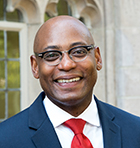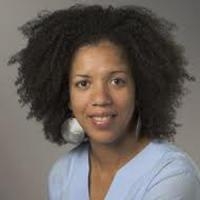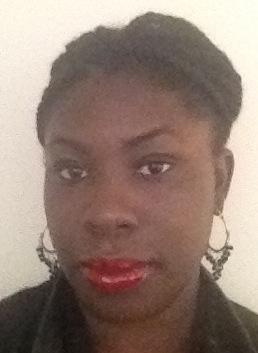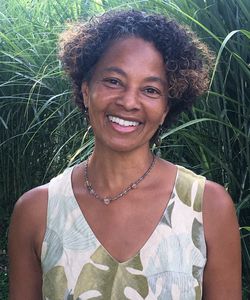For Black History Month, SPEAC students compiled short biographies of Black scholars working today in the fields of Classics and Archaeology and sent them weekly to our mailing list. There are so many amazing Black scholars in our fields, and here are just a few that we wanted to highlight!
Classics faculty members also presented short biographies of historical Black Classicists before the weekly Classics Colloquium (post to come!).
____________
 Dr. Patrice Rankine got his BA from Brooklyn College CUNY and MA, MPhil, and PhD in Classical Languages and Literatures from Yale University. Since 2016, he has been Dean of the School of Arts and Sciences and Professor of Classics at the University of Richmond. As a faculty member at Richmond and other universities, he has taught courses about classical languages, literatures, and theater; literary theory and criticism; and Black literature and the classics.
Dr. Patrice Rankine got his BA from Brooklyn College CUNY and MA, MPhil, and PhD in Classical Languages and Literatures from Yale University. Since 2016, he has been Dean of the School of Arts and Sciences and Professor of Classics at the University of Richmond. As a faculty member at Richmond and other universities, he has taught courses about classical languages, literatures, and theater; literary theory and criticism; and Black literature and the classics.
In 2013, as a professor at Purdue University, Dr. Rankine received the Enhancing Research in the Humanities Grant and researched slavery in Brazil. This research contributed to his project Slavery and the Book and to a conference he organized entitled “Transhistorical and Interdisciplinary Approaches to Slavery.” He has taught, lectured, and written widely, and here we’ll recommend just one of his many publications: this 2019 article on “The Classics, Race, and Community-Engaged or Public Scholarship.”
____
 Dr. Whitney Battle-Baptiste is a current Professor of Anthropology at the University of Massachusetts, Amherst, specializing in the historical archaeology of the African diaspora and its interconnections with race, gender, and class. After earning her BA in History and Secondary Education from Virginia State University, Dr. Battle-Baptiste went on to earn her MA in History from the College of William and Mary and then her PhD in Anthropology from the University of Texas, Austin’s African Diaspora Program in Anthropology. She has conducted research across the United States with previous research initiatives located in Nashville to study the domestic spaces of enslaved African people, in Boston to examine school segregation in the 19th century, and at the childhood home of W.E.B Du Bois in Great Barrington, Massachusetts. Outside of the United States, Dr. Battle-Baptiste’s most recent research project is a community-based project at the Millars Plantation site on Eleuthera in the Bahamas. Her current research also aims to understand how archaeological theory and materiality informs how we think about systemic racism, both within the United States and globally.
Dr. Whitney Battle-Baptiste is a current Professor of Anthropology at the University of Massachusetts, Amherst, specializing in the historical archaeology of the African diaspora and its interconnections with race, gender, and class. After earning her BA in History and Secondary Education from Virginia State University, Dr. Battle-Baptiste went on to earn her MA in History from the College of William and Mary and then her PhD in Anthropology from the University of Texas, Austin’s African Diaspora Program in Anthropology. She has conducted research across the United States with previous research initiatives located in Nashville to study the domestic spaces of enslaved African people, in Boston to examine school segregation in the 19th century, and at the childhood home of W.E.B Du Bois in Great Barrington, Massachusetts. Outside of the United States, Dr. Battle-Baptiste’s most recent research project is a community-based project at the Millars Plantation site on Eleuthera in the Bahamas. Her current research also aims to understand how archaeological theory and materiality informs how we think about systemic racism, both within the United States and globally.
In addition to her role as a professor, Dr. Battle-Baptiste is the Director of the W.E.B Du Bois Center at the University of Massachusetts, Amherst which was established in 2009 with the goal of educating and engaging audiences with the works of W.E.B Du Bois while also supporting scholarship and bringing attention to issues regarding race, labor, and social injustice. Dr. Battle-Baptiste writes that she considers herself, “both a scholar and an activist”.
Publications by Dr. Battle-Baptiste include Black Feminist Archaeology (2011) and W. E. B. Du Bois’s Data Portraits: Visualizing Black America, co-edited with Britt Russert (2019).
____
 Dr. Sasha-Mae Eccleston earned her BA from Brown University, her MPhil as a Rhodes scholar at Oxford University, and her PhD in Classics from University of California, Berkeley. She is now an Assistant Professor of Classics at Brown. Dr. Eccleston co-founded the Racing the Classics conference series and Eos, “a scholarly society dedicated to Africana receptions of Ancient Greek and Roman culture.” She has served on the steering committee of The Mountaintop Coalition and on SCS’s Committee on Diversity in the Profession.
Dr. Sasha-Mae Eccleston earned her BA from Brown University, her MPhil as a Rhodes scholar at Oxford University, and her PhD in Classics from University of California, Berkeley. She is now an Assistant Professor of Classics at Brown. Dr. Eccleston co-founded the Racing the Classics conference series and Eos, “a scholarly society dedicated to Africana receptions of Ancient Greek and Roman culture.” She has served on the steering committee of The Mountaintop Coalition and on SCS’s Committee on Diversity in the Profession.
Dr. Eccleston studies classical reception and moral philosophy, embodied difference, and the relationship between humans and non-human animals in classical texts such as Apuleius. Her current book projects are Humanizing Speech: Apuleius and the Ethics of Narrating and Epic Events, which explores themes of race and time in classical reception in the post-9/11 U.S. We recommend Dr. Eccleston’s article “Cyrus Console’s The Odicy and epic ecology,” which can be found on Tripod here.
____

Dr. Solange Ashby is an Egyptologist and archaeologist. She received her BA in Intercultural Studies from Simon’s Rock College and her PhD in Egyptology from University of Chicago. Her areas of expertise include religion, women, sexuality, colonialism, diplomacy, gender, indigenous peoples, and literary history. Dr. Ashby’s knowledge of ancient languages including Egyptian hieroglyphs, Demotic, and Coptic, Ethiopic, Biblical Greek and Biblical Hebrew are fundamental to her work on religious transformation as monotheistic religions (Judaism, Christianity, and Islam) replaced traditional religion in Egypt and Nubia. She has conducted research in Egypt and excavated at the royal cemetery of El-Kurru in Sudan. Her monograph Calling Out to Isis: The Enduring Nubian Presence at Philae was published in 2020 by Gorgias Press and examines the presence and traces of Nubian worshipers in Egyptian temples in Lower Nubia. You might engage with her work by reading her article “Milk Libations for Isis: Nubian Piety at Philae,” or watching her recent talk, “Sacred Dancers: Nubian Women as Priestesses of Hathor.”
She is on the team of the William Leo Hannsberry Society, a group of archaeologists, zooarchaeologists, bioarchaeologists, Nubiologists, Egyptologists, Ethiopianists, and Africana Studies scholars who are committed to promoting and diversifying the study, research, and scholarship of the ancient African past. They aim to bridge obstacles that prevent Black people from acquiring education and technical skills necessary for study, research, and scholarship on African antiquity. They are currently developing programs including an intensive language course on Middle Egyptian and a field school in Sudan.
____________
Visit these sites to learn more about Black scholars working on the ancient world:
The Society of Black Archaeologists
Notes from the Apotheke – A Blog about being BIPOC in Classics
____________
Stay tuned for our post compiling the historical bios!
*Note: Some links above are for Tripod, the BiCo library system. If you have trouble accessing the referenced articles please let us know and we will find them for you.